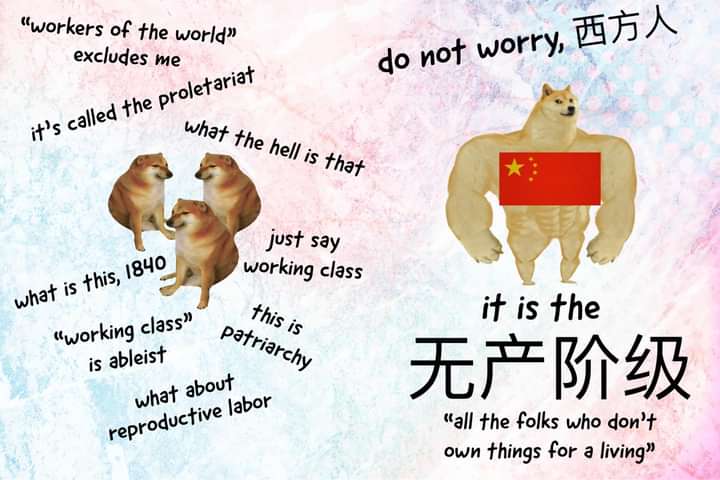this post was submitted on 28 Jun 2024
57 points (98.3% liked)
languagelearning
14166 readers
1 users here now
Building Solidarity - One Word at a Time
Rules:
- No horny posting
- No pooh posting
- Don't be an ass
founded 4 years ago
MODERATORS
you are viewing a single comment's thread
view the rest of the comments
view the rest of the comments

Broken down it's (traditional/simplified/JP)
無產/无产/無産 non-owning
階級/阶级/階級 class
Easy peasy! One of my favorite things about Sinitic compounds is that they tend to be a lot more transparent than their Greek/Latin counterparts in English. Idk what order hanzi are taught in China, but these characters are elementary enough that a Japanese kid who's made it past the fourth grade could parse out the general meaning. Also it's very cool that you can get cross-linguistic understanding both within the Sinitic language family and with the other unrelated East Asian languages like with the direct conversion to Japanese here (I could have also written it in Korean hanja as 無産階級 (무산계급)). Doesn't always work that way, but it is pretty damn handy.
(oh also the Pinyin is wúchǎn jiējí)
All this seems way harder than english
my friend your language has twelve fucking tenses
This doesn't even include counterfactuals (I would have played tennis, but...)
Anyway the way this is done in Chinese is as follows (not going to pretend to be an expert, this is a newbie explaining things to other newbies): consider the phrase "Yesterday, I played tennis". English is a high-entropy language in the sense that it has a lot of redundancy. Here, the verb conjugation "played" is redundant; the "ed" confers no additional information since it is already clear we are talking about the past from the use of "Yesterday". In Mandarin the direct translation of this sentence would be "Yesterday I play tennis" or "Zuótiān (yesterday) wǒ (I) dǎ (play) wǎngqiú (tennis)". If you just want to talk about things in the generic past tense you use the le particle, so "I played tennis" would be "wǒ (I) dǎ (play) le (past-tense modifier) wǎngqiú (tennis)".
I would have played tennis, but lawnsports are colonial and I am a good person
<jk, grumbles about labour aristocracy, I'm colonial as, and I've totally played tennis, I'm actually prrtty good>